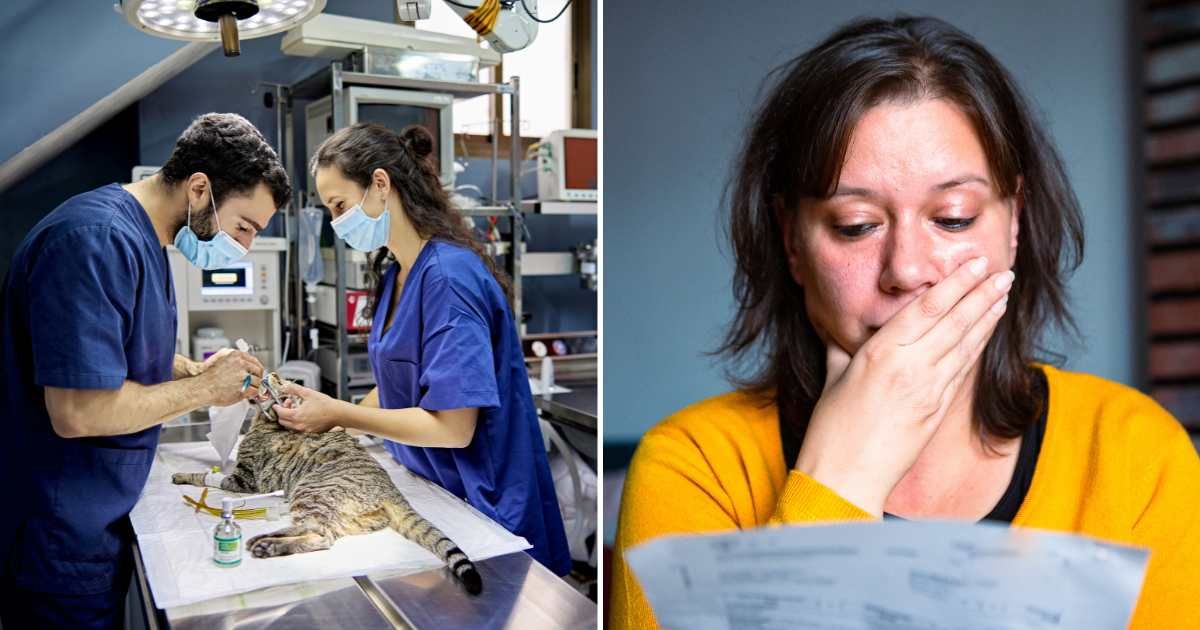Family agreed to pay whatever it took to save their sick cat from euthanasia — then came a shocking bill they never expected

Veterinary care for pets has become expensive over the years, and many pet owners are struggling to keep up with the rising costs. In some cases, these expenses can reach eye-watering amounts, leaving owners to make tough decisions. One family had to deal with this financial shock after their kitten’s surgery came with an unexpected price tag.

As reported by Scripps News, Ginger, a pet owner who does not want to reveal her last name, was heartbroken when her Persian longhaired kitten was diagnosed with a kidney stone blocking normal function. After the first surgery failed, doctors told Ginger her cat was facing end-of-life renal failure, with only one or two days left to live. Unwilling to say goodbye, Ginger decided to pursue a second surgery, which was ultimately successful. However, the bill for the procedure shocked her when it totaled over $30,000. Dr. Rebecca Greenstein, a veterinary medical advisor for Rover, explained that costs for surgical procedures have surged since the pandemic, due to rising prices in equipment, anesthesia, and skilled labor.

Greenstein also stressed the importance of pet insurance, noting that it is becoming increasingly common for pet owners to have insurance, especially for emergency situations. "Most of my clients who have insurance and had their pets have an emergency surgery, for example, they sing the praises of insurance over and over again," Greenstein shared. A typical pet insurance plan, according to Forbes Advisor, costs around $46 per month for dogs and $23 for cats, with a $5,000 annual coverage and a $250 deductible. Ginger, who hadn't purchased insurance for her cat because it was still young, now advises other pet owners to get coverage early to avoid similar financial strain. “This happened a little before turning one, so we hadn't gotten pet insurance,” she shared. Despite the high cost, she expressed gratitude for the transparency throughout the process, as the veterinary hospital kept her informed of all potential costs along the way.

But as the saying goes, prevention is better than cure. Veterinary experts are now suggesting that pet owners take proactive steps to avoid costly treatments. According to Dr. Mark Dos Anjos from Parade Pets, there are top preventive measures every pet owner should follow to keep their dogs healthy. Heartworm is a deadly parasite that can cost thousands to treat, but prevention is simple and much cheaper. Affordable preventatives are available, even without a prescription. Dr. Dos Anjos also stresses the importance of core vaccinations and yearly exams, which catch health problems early before they become serious.

Fleas are another problem that can lead to itching, skin infections, and expensive treatments, especially in long-haired dogs like Huskies or Golden Retrievers. Flea and tick control products, now widely available, can stop these issues before they start. Dr. Dos Anjos also reminds owners not to skip vaccines like rabies and distemper, which protect dogs from deadly diseases. While annual check-ups may seem costly, they help find small issues early and save money and suffering in the long run.